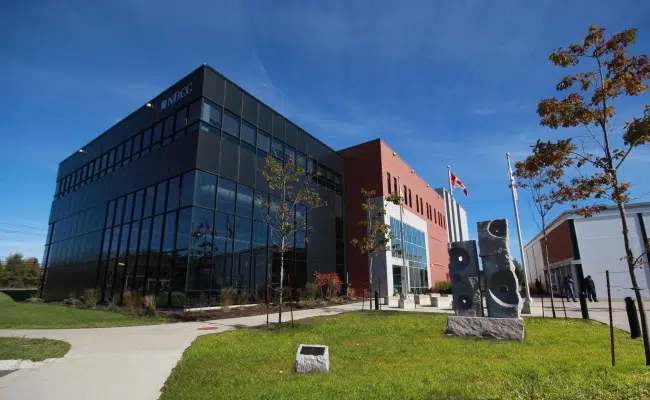New Brunswick Community College (NBCC) has been forced to cut more than 60 positions.
The college has also paused or cancelled several programs across the province.
President and CEO Mary Butler said it stems from recent federal immigration changes.
“We’ve already seen about an 800 to 900 student decline as a result of these policy changes,” Butler told our newsroom.
“That’s resulted in us needing to realign our resources to kind of right-size the organization.”
Most of the 66 positions that were cut were done through attrition or by not renewing contracts.
Fewer than 10 people received layoff notices from the Crown corporation, Butler confirmed in an interview.
“The rapid decline in international students is certainly having an impact on us, but more importantly, an impact on the long-term prosperity of New Brunswick, because now we’re going to have fewer graduates and fewer people entering the workforce,”
This is significant in a province which faces 130,000 job openings over the next decade, largely due to a wave of retirements, said Butler.
RELATED: N.B. workforce will be affected by student cap: NBCC
The president said they have been working to increase their domestic student enrolment, but it is not coming up as fast as the international student enrolment declines.
“We knew there was a huge opportunity to serve more New Brunswickers, but it’s just taken us a while to figure out how to reach more learners where they are,” she said.
“We can’t afford to establish more campuses. So, how do we create reach when we’re so spread out as a province?”
That includes overhauling the curriculum to make it more flexible, delivering more virtual programming and creating a mobile training centre.
Butler said they have asked the province for a $4-million increase to their annual operating grant, which currently makes up around 56 per cent of their budget.
“We’re going to work with them, do everything we can on our part, but I really don’t want to see the labour supply shrinking and NBCC shrinking at a time when in order for us to not only survive, but thrive, we need to be having more students attend and producing more graduates every year,” she added.











